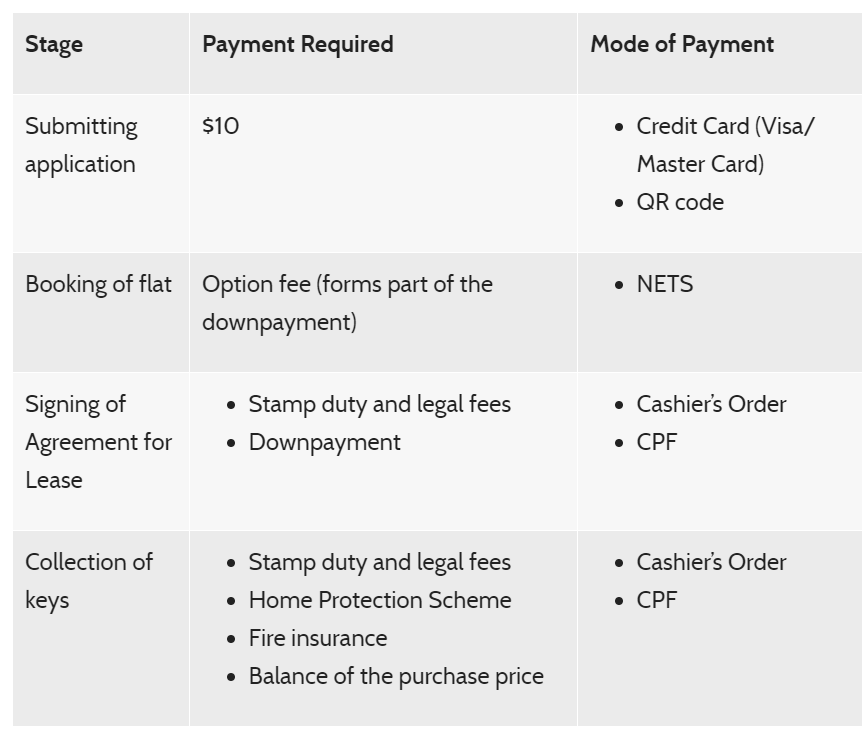PERSPECTIVE: What happens after a couple, who is in the midst of applying for a BTO flat together, decide to break up?
In sharing their stories with Mothership, several Singaporeans take us through the process of what happened when they decided to forfeit their BTO flat, opening up about the different aspects of loss — both emotional and financial.
"What nobody likes to talk about" is a collection of perspectives revolving around various difficult conversations, typically involving intensely personal experiences that are often hard to talk about.
For any Singaporean couple, deciding to apply for a HDB BTO flat implies that they would have to get married within the next few years. Suffice to say, this decision carries with it a fair bit of committment.
The entire application process and time taken for the flat to be built means another four to five years of waiting, so, if you're fairly certain that you want to be with this person, it seems reasonable to start earlier rather than later.
But life is unpredictable, and sometimes, a lot can change in a few years. When a relationship ends in the midst of the BTO application process, things can get tricky.
Three women in Singapore take us through the process of what happened from the time they decided to apply for the flat to the point when they gave everything up.
1) The decision to apply
For Joan* (not her real name) Tan, 27, she said that she and her then-boyfriend applied for a BTO in 2016 about a year-and-a-half into their relationship.
"I was 23 at the time, so the timing seemed 'just nice' if we BTO-ed and got our place after four to five years. As for why I decided to at the time, it was my first serious relationship and I was very idealistic about it working out, so when he brought up the idea of applying for a flat, I thought sure, why not just try our luck?"
A 26-year-old, who only wanted to be known as Rachel, shared the same sentiments.
"After being together for almost two years, we felt it was the right time for BTO because we were comfortable with each other. Also, most BTO flats require around three years to be ready. We thought about it and realised that by the time we can move in to our BTO, it will be five years into our relationship. We BTO-ed in 2018."
But not everyone felt the same certainty at the time of their application.
For Emi (not her real name), 27, she shared she felt apprehensive because of her future job and financial situation, but still went along with the application after being persuaded by her partner:
"I knew I was going to travel for a long time (this was pre-pandemic) and I knew I was not going to be financially stable. However, he offered to take up more of the burden and insisted we should try for it anyway since the chances of actually being successful is unknown. But throughout the entire process (from applying, to getting the queue number, selecting our unit and paying the option fee), I still had feelings of uncertainty."
2) The break up
Two years after their application, Tan and her then-boyfriend decided to give up the flat: "I realised this guy wasn't someone I wanted to spend my whole life with, so we broke up."
"To make things worse the day we took a break was the day we were supposed to visit our wedding venue to make a deposit," she said.
"But the truth was that when I was together with him, I had periods of doubt. If I wasn't forced to think about living together, I wouldn't have come to the conclusion so quickly that it wasn't right for me."
For Emi, she was living overseas when the break up happened.
"I didn't want to break up at first. All I wanted was to cancel the BTO and then maybe we could do it again when I was ready. We were still very much in love then. However, he wasn't open to the idea. He insisted [on] a tangible commitment, and wanted us to settle down.
The break up was initiated by me in the end when I realised that the both of us were no longer on the same page about our priorities and future."
She also confessed that she was "intimidated" by the thought of having to get married soon:
"While travelling, I realised that I wanted to keep travelling for a couple of years before settling down, and hence, I felt like I was no longer financially ready for the BTO. I was also intimidated by the thought of having to get married in two years' time (because that's when the BTO would be ready)."
A break up is a confusing and difficult process for both parties, and understandably so.
Rachel said that the process was "very problematic, especially [because] they couldn’t figure out what (they) wanted together", with exchanges getting heated at times.
Tan also said that she felt "a lot of fear [regarding] breaking up" as their "lives were super intertwined" -- they had two cats that they were taking care of together, and with the BTO on the way, it made the split even tougher.
"I think he was also quite disappointed. I assume it was a very emotional period for him as well."
3) Forfeiting flat comes with forfeiting the money already put in
Apart from coping with the emotional stress, they also had another loss to grapple with: If a couple decides to forfeit their flat after the signing of the Agreement for Lease, they will lose their downpayment.
 Via HDB.
Via HDB.
As she had been overseas, Emi said that it was a "good thing" that she was away from Singapore at that time:
"It gave us some time to mull things over. Paying for the 5 per cent downpayment required both our presence, but because I wasn't in Singapore, we were able to reschedule the downpayment appointment to a month later."
She had originally planned to travel to the country's capital (she was staying in a small town) to get a letter signed. This letter would authorise her then-partner and another lawyer who was representing her to settle the entire downpayment process.
In the end, because their relationship ended, the monetary cost involved was the application fee, option fee (S$2,000) as well as the lawyer fees.
For Rachel, who was in Singapore, she said they had to fill up a form on the HDB website before proceeding with the cancellation.
"For us, we had to forfeit 5 per cent of the flat purchase price. It wasn’t problematic or troublesome. It was more of the emotional issues that were very annoying."
Things can get a bit more complicated, however, when the downpayment is paid solely by one person.
In Tan's case, she explained that they were both students when they applied for the flat.
"He paid first because he was the only one with CPF money (he was also working for his dad’s company at that time). I didn't have much savings so it was basically wiping my savings out [at that time]. I intended to eventually pay him back after building up my own savings."
Following their break up, Tan said that the issue of the money was left unresolved for quite a long while.
Even though Tan tried to broach the subject, she said there were no real conclusions.
4) A turn of events: Transfer of ownership
When he eventually got back to her regarding the downpayment, Tan's ex-boyfriend said that he had found someone to take up the flat with (this was slightly less than two years after their break up). Which meant that Tan would not have to fork out a single cent.
"I went to HDB Hub, met him and the new fiancee to sign some handover papers and that was it. They basically transferred it to her name. It took like five minutes!" Tan said.
How did she feel about that? Relieved, apparently. She said:
"I could finally be free from this worry of financial debt. We didn't keep in touch but I wished him all the best in my heart. Deep down, I think I always knew he wanted to settle down... so if he found that, I'd be really happy for him."
And was it weird having to face her ex's new fiancee?
Tan said that they didn't talk during that entire meeting, but she "always wondered how she (the fiancee) felt about it".
"But to me, if she's okay, then it's all good."
5) Reflection and healing
So, what next? How does one move on from an experience like that and learn to commit again?
For Tan, she said that this incident has made her "super traumatised".
"I would think BTO isn't a terrible choice if you've been together at least like four to five years and have seen the worst of each other. But by then, why will you want to BTO (due to the long waiting time)? To me, that’s the flaw — that you don't actually get to be with the person long enough to truly understand them or be sure about living with them 'forever'.
[My experience] has made me much more sceptical towards relationships but I think I will still want to cohabit with my partner. Maybe just not BTO."
But not everyone arrived at the same conclusion.
For Emi and Rachel, their past experiences have not deterred them from considering BTO applications if a suitable person comes along in the future.
Instead, they have taken this experience as a learning opportunity for future relationships.
Emi said that she has learnt the importance of open communication and being on the same page with her partner:
"I don't think that this incident would deter me from applying for BTO again in the future – when there's open communication and both parties feel ready.
Because of this incident, I have always been sure to talk about marriage and priorities with any potential partners from the beginning, because I don't want to waste my time eventually finding out we're not on the same page. I don't really care that talks like this early in relationships could be daunting for most people – it is an important discussion."
Rachel felt the same, adding that she will "really think it through before committing" in future.
"Even though it’s going to be a long wait for the flat to be completed, I would much rather wait than to be with someone who I can’t see myself with in the future," she said.
Top photo via Steven HWG/Unsplash, via Princess Azie
If you like what you read, follow us on Facebook, Instagram, Twitter and Telegram to get the latest updates.
